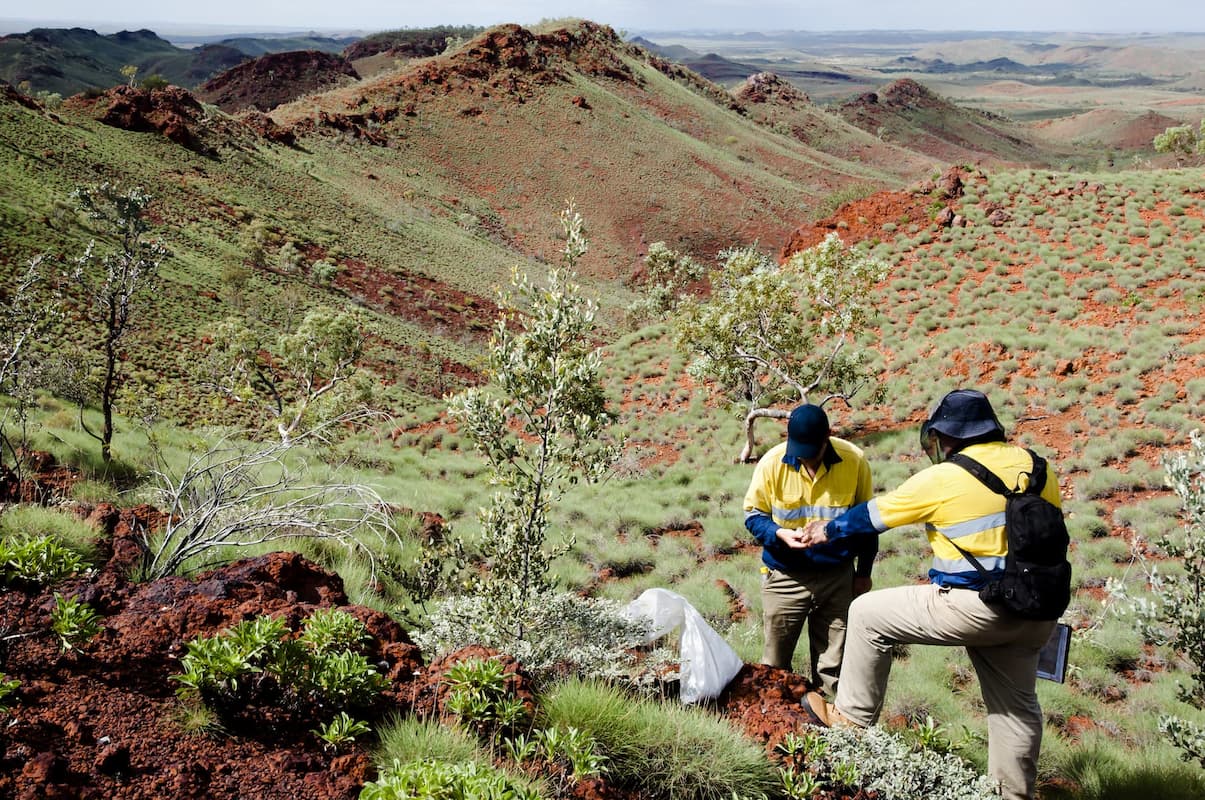A geologist is a scientist who studies geological phenomena, the Earth’s history, and its resources. They collect and analyse data from various sources, such as geological surveys and laboratory testing, to study natural phenomena like mountains, volcanoes, oceans, and earthquakes. Geologists work across various industries such as mining, oil extraction, construction, and environmental management.
Geologist jobs
Geologist job profile
Geologists use their knowledge of geological features and processes to analyse data and provide insights on natural resources, hazards, and environmental impacts. They apply their expertise in geological sciences to environmental management, natural resource exploitation, and other areas. Geologists work extensively with other scientists and professionals to conduct research and provide valuable insights in many industries.
Geologist jobs Australia
Geology offers numerous job opportunities in Australia, both within and beyond the mineral resource sector. Geologists with qualifications and expertise can pursue careers in mineralogy, petrology, economic geology, construction, mining, geological mapping, environmental planning, petroleum geology, and renewable energy. These opportunities exist in various sectors including mining and petroleum industries, geological survey organizations, engineering consultancy firms, environmental consultancy agencies, private companies (both domestic and international), government departments at federal, state, and territory levels, teaching institutes, research centres, and universities.
Geologist responsibilities
As a Geologist, your primary responsibilities would include:
- Planning geology projects, such as oil extraction or water pipeline construction.
- Analysing geological data.
- Coordinating research programs.
- Studying sites for developments, formations, hazards, and composition.
- Investigating and evaluating natural resource deposits, such as oil.
- Designing topographical and geological maps.
- Providing geological assessments and recommendations to governments, construction companies, and otherstakeholders.
- Ensuring compliance with environmental regulations in construction and production projects.
- Managing and overseeing contractors’ work.
- Managing budgets for geological projects.
- Delivering feedback and insights into work projects to management through regular meetings.
- Conducting frequent training sessions with staff regarding investigations and data interpretation.
Geologist qualifications
Geologists are an essential part of many sectors and industries, providing critical insights into geological phenomena and our planet's natural resources. If you're interested in pursuing this career path, you should get a degree in geology or geosciences and gain practical experience in various fields related to mining, environmental assessment, land remediation, and development. To become a geologist, you’ll often need these qualifications and degrees:
- A degree in geology or geoscience.
- 3 years of experience in mining, environmental assessments, land development and/or land remediation.
- Proven experience as a geologist.
- Experience with various geological techniques like mining, boring, and numerical modelling.
- Experience using geology software.
- Familiarity with environmental regulations.
- Good knowledge of the attributes of ores, soil, minerals, and other materials.
- Ability to handle and analyse data and 3D models.
- Ability to work adaptively across various environmental conditions outdoors.
- Excellent knowledge of geology and geological factors of the specified location.
- Great technical ability to design mappings of geological data and use geological databases and software.
- Practical experience in collecting and analysing geological information such as water, soil, and rock data.
Other essential geologist skills include:
- An analytical mind.
- Attention to detail.
- Great communication skills (both oral and written).
- Organisational and teamwork ability.
- Ability to write accurate reports on data collection and analysis.
- Strong conceptual and research skills. <
- Intuitive leader who displays accuracy and attention to detail.
